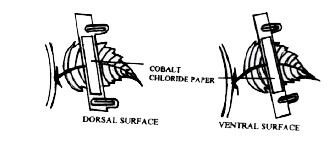Can the experimental probabilty of an event be greater than 1? Justify your answer.
To determine whether the experimental probability of an event can be greater than 1, we need to understand the definition of probability and how it is calculated.
1. Understanding Probability:
Probability is defined as the ratio of the number of favorable outcomes to the total number of possible outcomes. Mathematically, it is expressed as:
P(E)=Number of favorable outcomesTotal number of outcomes
2. Identifying Favorable and Total Outcomes:
- The favorable outcomes are the outcomes that we are interested in (e.g., getting a specific number when rolling a die).
- The total outcomes are all the possible outcomes that can occur (e.g., all the numbers on a die).
3. Analyzing the Ratio:
Since the number of favorable outcomes can never exceed the total number of outcomes, we can conclude:
Number of favorable outcomes≤Total number of outcomes
4. Establishing the Probability Range:
From the above relationship, we can derive that:
P(E)=Number of favorable outcomesTotal number of outcomes≤Total number of outcomesTotal number of outcomes=1
This shows that the probability of any event must always be less than or equal to 1.
5. Conclusion:
Therefore, the experimental probability of an event cannot be greater than 1. It can range from 0 (impossible event) to 1 (certain event).
Final Answer:
No, the experimental probability of an event cannot be greater than 1 because the number of favorable outcomes is always less than or equal to the total number of outcomes.
---
Probability is defined as the ratio of the number of favorable outcomes to the total number of possible outcomes. Mathematically, it is expressed as:
P(E)=Number of favorable outcomesTotal number of outcomes
- The favorable outcomes are the outcomes that we are interested in (e.g., getting a specific number when rolling a die).
- The total outcomes are all the possible outcomes that can occur (e.g., all the numbers on a die).
Since the number of favorable outcomes can never exceed the total number of outcomes, we can conclude:
Number of favorable outcomes≤Total number of outcomes
From the above relationship, we can derive that:
P(E)=Number of favorable outcomesTotal number of outcomes≤Total number of outcomesTotal number of outcomes=1
This shows that the probability of any event must always be less than or equal to 1.
Therefore, the experimental probability of an event cannot be greater than 1. It can range from 0 (impossible event) to 1 (certain event).
No, the experimental probability of an event cannot be greater than 1 because the number of favorable outcomes is always less than or equal to the total number of outcomes.
Topper's Solved these Questions
- BOOK - NCERT EXEMPLAR ENGLISHCHAPTER - STATISTICS AND PROBABILITYEXERCISE - SHORT ANSWER TYPE QUESTIONS20videos
STATISTICS AND PROBABILITY
- BOOK - NCERT EXEMPLAR ENGLISHCHAPTER - STATISTICS AND PROBABILITYEXERCISE - LONG ANSWER TYPE QUESTIONS12videos
STATISTICS AND PROBABILITY
- BOOK - NCERT EXEMPLAR ENGLISHCHAPTER - STATISTICS AND PROBABILITYEXERCISE - LONG ANSWER TYPE QUESTIONS12videos
STATISTICS AND PROBABILITY
- BOOK - NCERT EXEMPLAR ENGLISHCHAPTER - QUADRILATERALS EXERCISE - LONG ANSWER TYPE QUESTIONS18videos
QUADRILATERALS
- BOOK - NCERT EXEMPLAR ENGLISHCHAPTER - TRIANGLESEXERCISE - LONG ANSWER TYPE QUESTIONS21videos
TRIANGLES
Similar Questions
Can the experimental probability of an event be a negative number? If not, why?
View SolutionCan Q and S, both be metals ? Justify your answer.
View SolutionCan a stable molecule have zero bond order ? Justify your answer.
View SolutionIn response to a question, a student stated that in an atom, the number of protons is greater than the number of neutrons, which in turn is greater than the number of electrons. Do you agree with the statement ? Justify your answer.
View SolutionThe probability of a certain event is (a)0 (b) 1 (c) greater than 1 (d) less than 0
View SolutionGiven below is an experimental set-up to demonstrate a particular process. Study the same and answer the questions that follow :

What would you observe in the experimental set up after an hour? Give a reason to support your answer.View SolutionIs 0 a term of the AP 31, 28, 25, …? Justify your answer.
View SolutionWould you expect the second electron gain enthalpy of O as positive , more negative or less negative than the first? Justify your answer.
View SolutionWould you expect the second electron gain enthalpy of O as positive, more negative or less negative than the first? Justify your answer.
View SolutionWould you expect the second electron gain enthalpy of S as positive, more negative or less negative than the first? Justify your answer.
View Solution

